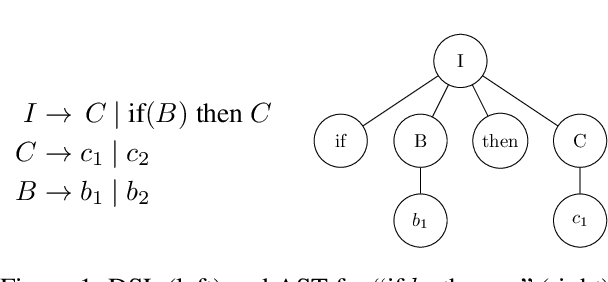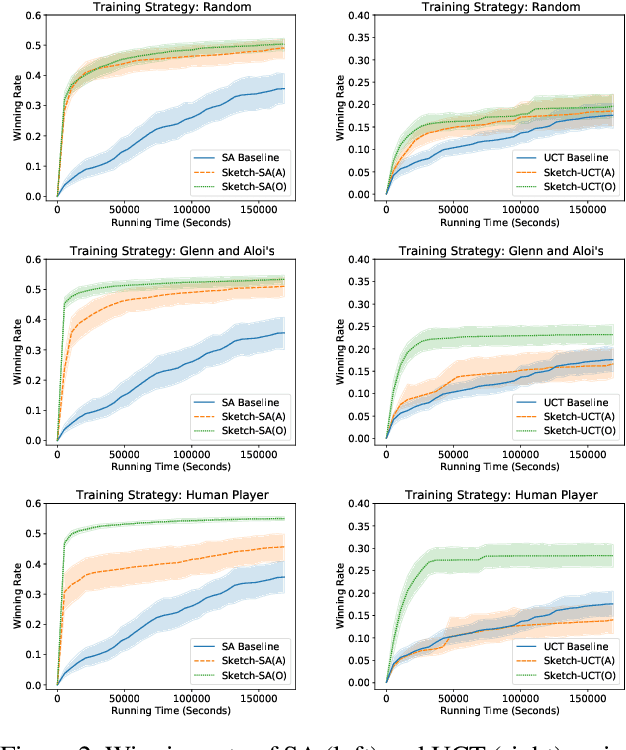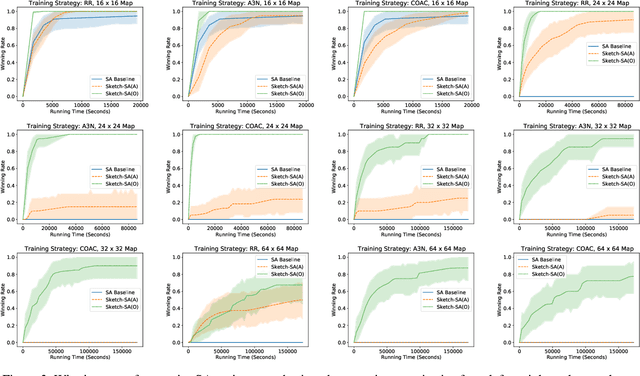David S. Aleixo
Choosing Well Your Opponents: How to Guide the Synthesis of Programmatic Strategies
Jul 24, 2023Abstract:This paper introduces Local Learner (2L), an algorithm for providing a set of reference strategies to guide the search for programmatic strategies in two-player zero-sum games. Previous learning algorithms, such as Iterated Best Response (IBR), Fictitious Play (FP), and Double-Oracle (DO), can be computationally expensive or miss important information for guiding search algorithms. 2L actively selects a set of reference strategies to improve the search signal. We empirically demonstrate the advantages of our approach while guiding a local search algorithm for synthesizing strategies in three games, including MicroRTS, a challenging real-time strategy game. Results show that 2L learns reference strategies that provide a stronger search signal than IBR, FP, and DO. We also simulate a tournament of MicroRTS, where a synthesizer using 2L outperformed the winners of the two latest MicroRTS competitions, which were programmatic strategies written by human programmers.
What can we Learn Even From the Weakest? Learning Sketches for Programmatic Strategies
Mar 22, 2022



Abstract:In this paper we show that behavioral cloning can be used to learn effective sketches of programmatic strategies. We show that even the sketches learned by cloning the behavior of weak players can help the synthesis of programmatic strategies. This is because even weak players can provide helpful information, e.g., that a player must choose an action in their turn of the game. If behavioral cloning is not employed, the synthesizer needs to learn even the most basic information by playing the game, which can be computationally expensive. We demonstrate empirically the advantages of our sketch-learning approach with simulated annealing and UCT synthesizers. We evaluate our synthesizers in the games of Can't Stop and MicroRTS. The sketch-based synthesizers are able to learn stronger programmatic strategies than their original counterparts. Our synthesizers generate strategies of Can't Stop that defeat a traditional programmatic strategy for the game. They also synthesize strategies that defeat the best performing method from the latest MicroRTS competition.
 Add to Chrome
Add to Chrome Add to Firefox
Add to Firefox Add to Edge
Add to Edge